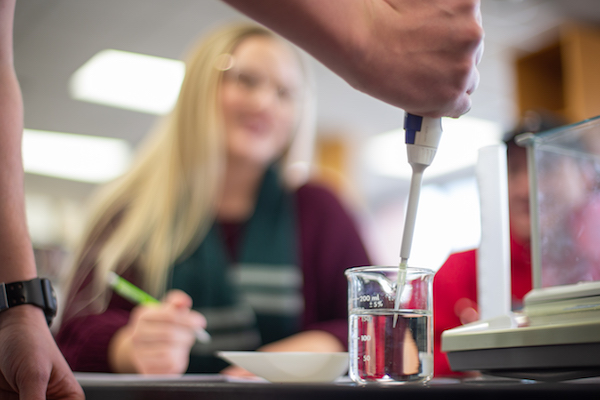Why study Biology
At APSU, students interested in the living world get hands on experience in the lab and out in the field, both through structured activities and through research, study abroad, and other high impact experiences. Students can research endangered plant, bat, and fish species, conduct experiments involving genetics in beetles and neuronal physiology, gain an appreciation for birds, algae, and reptiles, and discover bacteriophages in soil samples. Students can study disease states such as cancer and cardiovascular disease and learn how vaccines are developed. Study abroad trips to Belize, Costa Rica, and Antigua provide study of marine life, ecological systems, and non-traditional pharmacology. The BS in Biology is broad and diverse with lots of opportunities for developing new skills that provide career preparedness and students are trained each step of the way.
A bachelor of science in biology provides a foundation for understanding the living world from the smallest microorganisms to larger organisms such as plants and animals. Majors become broadly trained in microbiology, zoology, and botany, as well as genetics, ecology, physiology, cell and molecular biology, and evolution. Biology majors learn critical thinking, problem solving, research methods, and other important skillsets needed for almost every career from field biologists and conservationists to biomedical researchers and environmental scientists. Graduates are also prepared for advanced studies at the masters and doctoral level and to attend professional health schools, such as medical, pharmacy, and dental programs.
Biology majors at APSU are provided with opportunities to not only learn biology, but to experience the field through immersive activities. Students complete lab activities associated with each biology course where they make observations, collect and critically evaluate data and learn to use equipment and work individually and as a team. Students work closely with faculty to research in the lab and may travel to remote field sites to collect samples. Students can study abroad in Central America and the Caribbean where they encounter new species and develop global awareness. Majors present their studies at local, state, and regional conferences and receive funding to carry out research and attend meetings. Students learn molecular, research, and field skillsets that prepare them for careers and advanced study after graduation. The department is associated with the Center of Excellence for Field Biology and Southeastern Grassland Institute and houses the Pre-Professional Health minor to pair with the Biology major. Small class sizes allow faculty and students to interact on a personal level and provides students with individualized support so that they can develop as a biologist.
The Department of Biology includes experts in various subjects including mammalogy, ornithology, ichthyology, herpetology, microbiology, pharmacology, botany, physiology, genetics, ecology, molecular biology, and conservation. All faculty hold advanced degrees with most having PhDs. Everyone in the department, including staff and part time faculty, hold at least masters level credentials and have expertise in biology.
What will I learn
- Content Knowledge: Students earning a BS-Biology will demonstrate a command of the general principles of biology in the areas of cell biology, molecular biology and genetics, organismal biology and population biology, ecology and evolution.
- Ability to use quantitative analytical skills in data analysis: Students will demonstrate problem solving skills through the analysis of graphical representation of data.
- Skills Mastery: Students will demonstrate mastery of their molecular skill set and/or ecological skill set using an evaluation tool established by the Department.
- Career Preparedness: Since career preparedness is the intertwining of content knowledge and skills mastery in the matriculation of the student to the next level, students will demonstrate both content knowledge and skills mastery as evidence of career preparedness.
- Academic Advisement: Academic advisement is multifaceted and includes assisting students to successfully complete their degree in a timely manner while also helping them develop as a biologist.


